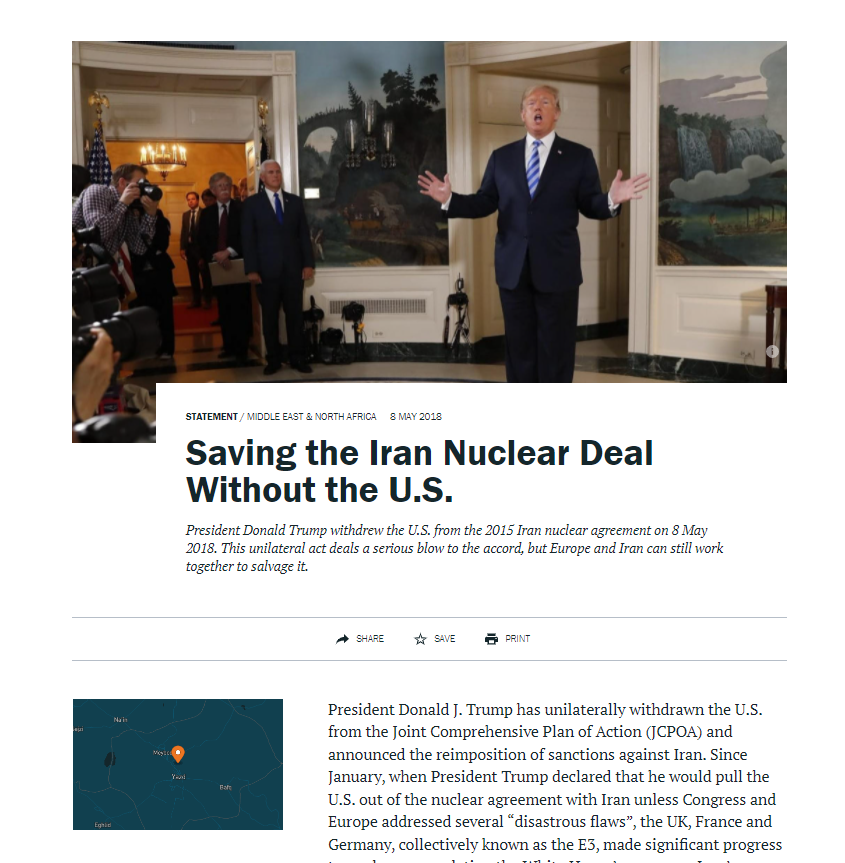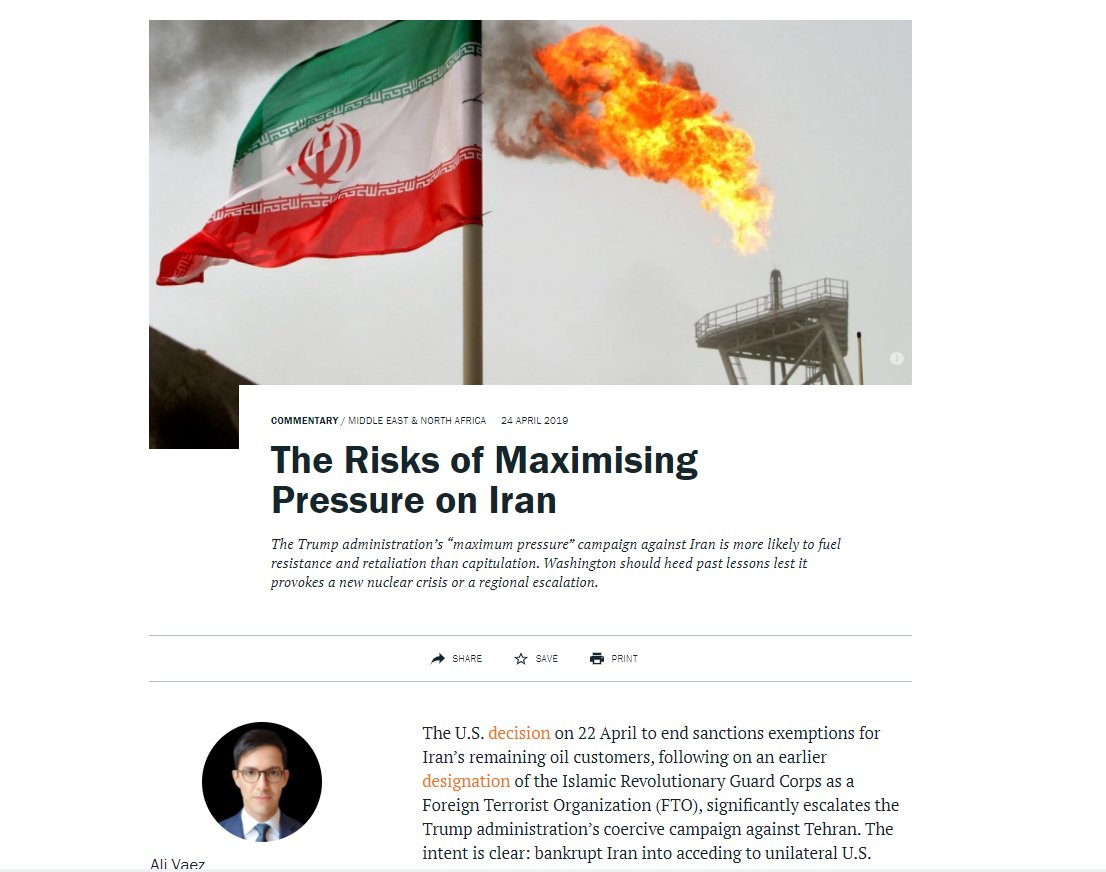
The effort to rewrite history is really quite something.
Let's start with this: If Trump hadn't left JCPOA, we wouldn't be discussing nuclear expansion in the first place.
But instead of acknowledging that for the mistake it is, facts are spun in the service of narrative. 1/
Let's start with this: If Trump hadn't left JCPOA, we wouldn't be discussing nuclear expansion in the first place.
But instead of acknowledging that for the mistake it is, facts are spun in the service of narrative. 1/
https://twitter.com/FDD/status/1471525531673899021
2/ Note the phrase "since the election" - a neat dodge over the fact that increase to 20%, uranium metal production, & limits on IAEA inspections all put in motion in Dec 2020, after assassination of Fakhrizadeh.
Yet this key fact is curiously omitted in the FDD history.
Yet this key fact is curiously omitted in the FDD history.

3/ And again in April 2021, we see the escalation of enrichment from 20% to 60%, somehow failing to mention the explosion at Natanz barely 48 earlier. 

4/4 The notion that Iran's nuclear escalation is "exploiting America's declining pressure" brazenly elides the fact that maximum pressure lit the fuse, sabotage added tinder, and the arsonists are now trying to blame the firefighters while recommending yet more dynamite.
• • •
Missing some Tweet in this thread? You can try to
force a refresh














